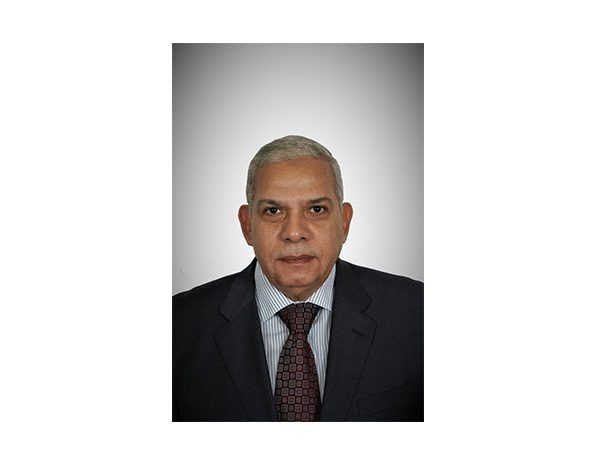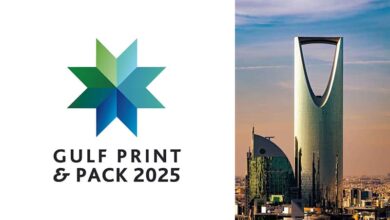Exclusive Interview with an Icon of Arab Publishing Industry

Mohamed Rashad, President of Arab Publishers Association and founder of the Egyptian Lebanese House for Publishing and Distribution
The Egyptian Lebanese House is considered the largest incubator for the greatest creators in Egypt, the first ladder for the emergence of new stars in the world of culture, and the largest recipient of literary and cultural awards at the local and Arab levels. Over the course of Muhammad Rashad’s journey throughout publishing industry, his institution has won more than fifty awards, which made it the most awarded Arab publishing house. In 1997, he was chosen as the best Arab publisher from the Emirate of Sharjah, and in the same year he was selected as the best children’s publisher in Egypt. In 2000 and 2001 he was named the best Egyptian cultural publisher, and then he won the Golden Creativity Award from Kuwait. He also won the Sheikh Zayed Prize for Child Literature, the Custodian of the Two Holy Mosques Prize for Culture, and the Best Scientific Book Award in 2010 in Kuwait. The House’s novels have received many prizes and recognitions including, Arabic Booker, Sawiris, Sheikh Zayed and Katara. To know more about the Man and his works we sat down with him. Here is a recap of our interview:
To begin tell us about the Egyptian Lebanese House and its message for book enthusiasts?
Since 1985 founders of the house have adopted a publishing approach that serves Arab and Islamic culture. Egyptian Lebanese House is committed to the sincerity of performance, the honesty of implementation, the nobility of the goal and the sublime message of education and enlightenment as well as insistence on excellence, respect for the rights of creativity and authorship, the availability of the brightest names, generosity, thought and creativity, and the originality. Last but not least we strive to keep pace with the latest trends of publishing industry. Since our humble beginning we have introduced a myriad of books and literary gems in different areas and publishing categories including general knowledge, philosophy and psychology, Islamic studies, social sciences, languages, pure sciences, applied sciences, arts, literature, geography, history as well as translations series, encyclopedias, and children’s books. The extensive volume of the popular and valuable books we have introduced to the Arab world proves that we are on the right path.
On the other hand, The Egyptian Lebanese House launched its first book store in August 2020 to promote culture and sell not only our books but also those works produced by other Egyptian and Arab publishing houses.
Tell us more about yourself, your accomplishments?
I started my foray into publishing world in 1970 in one of the major publishing houses in Lebanon, then I returned to Egypt in 1975 where I worked as director for the Egyptian Lebanese Book House until 1985, and in July 1985 I founded the Egyptian Lebanese House. The House has published more than two thousand titles so far. In 1988, the Arab House Book Library was established, and so far this year it has published more than a thousand titles.
With a number of other partners in Beirut I also established “Oriental papers” Publishing House in 1993. The company introduced a number of books on anecdotes as well as encyclopedias. It also contributed to the revival of the Egyptian Publishers Union in 1989. In 2004 I was elected Vice President of the Egyptian Publishers Association, and in 2010 I was named President of the Association and in 2016 I became president of Arab Publishers association. I was also appointed to a number of governmental boards including Book and Publishing Committee of the Supreme Council of Culture – the Egyptian Ministry of Culture in 1994 and Commodity Council for Books and Artistic Works of the Egyptian Ministry of Economy and Foreign Trade in 1999. I also worked closely with Dubai and Sharjah governments during publishing events including Sharjah Book Fair and I was honored by the ruler of Sharjah.
During my tenure in publishing industry I also received many awards and accolades from different governmental and private institutions which I am proud of, including the Sheikh Zayed Book Prize in the Children’s Literature category for the 2007 series “A Journey on Paper, Sheikh Zayed Book in 2009 and the Custodian of the Two Holy Mosques, King Abdullah bin Abdulaziz International Prize for Translation in 2010 for “The Collapse of Globalization and the Reinvention of the World”, which was published by the Egyptian Lebanese House in 2009.
Do you thing electronic media is killing print?
The paper book will remain steadfast, as it has existed since 1440. Reading and writing is embedded in our souls even before print was invented. People in ancient times wrote on stones and leather, conveying their thought writing on papyrus in ancient Egypt and clay tablets during the reign of Assyrians in Iraq. There is no doubt that the paper book will be around for many years, but this does not mean that e-book and the electronic media cannot thrive and flourish. They are another medium for publishers to offer their content. However, based on figures published by the International Publishers Association the rate of paper publishing increases 8 to 10% annually, while electronic publishing is declining.
Publishing houses compete with each other by offering different books or specialized subject matter, do you think the success of a book is linked to the publisher’s brand or the author?
I believe the brand of the publishing house and the extent of its credibility are what make readers turn up for literary works and published books. The house that has the tools for success can boost the career of young writers who want to enter the literary scene.
Have you recently participated in any exhibitions related to the printing or publishing industry?
We regularly participate in exhibitions organized by the Supreme Council of Culture including Cairo International Book Fair. This is something the writers are expect us to do.
In your opinion who should support the publishing industry?
Arab governments are required to support the publishing industry. Don’t forget culture is a barrier against extremism. We don’t need financial support, but we expect all parties to acquire books and make them available to public libraries, cultural centers, media organizations and young readers. I also like to point out that translation is the best means of communication between peoples, and Arab publishers must strive to convey the latest developments in the West to their Arab readers, but at the same time attention must be paid to transferring Arab literary works to other languages. Translation must be prioritized.
Has the Corona virus affected your work?
We only increased the number of work shifts in order to reduce the number of employees per shift. On the other hand, the book store project which was supposed to be implemented several years ago, but it was postponed, now is up and running. Many book shops had to close due to pandemic, and our sales also dropped considerably. So we decided to launch our own book store in order to respond to public demand for books during pandemic. We chose Zamalek neighborhood in downtown Cairo to establish our book store. Zamalek is the place where the publishing house of the American University was located. The publishing house was closed 5 years ago and we had no doubt that it is a perfect place to open a book shop for book enthusiasts.




